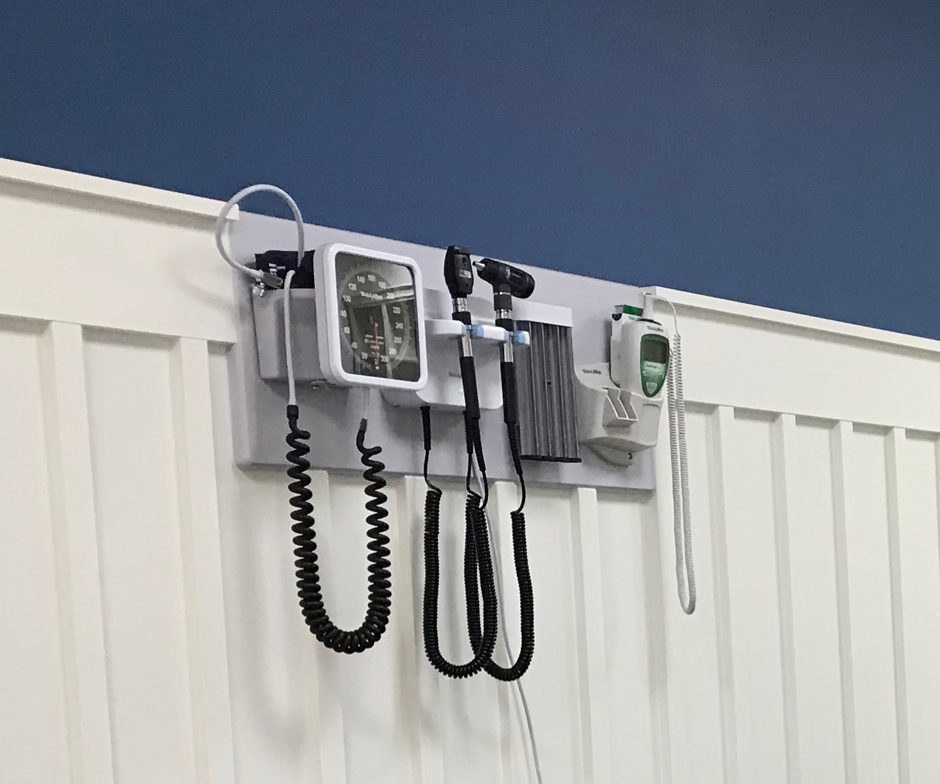
Can even modestly elevated BP cause brain shrinkage in younger adults?
Shockingly, the answer to this question may be “Yes, indeed it may!” New research asked this very question and found modest blood pressure elevations associated with decreased gray matter volume in young adults, as reported on MedPage Today January 23, 2019.
A study published in the prestigious journal Neurology this month (January 2019) brought this amazing discovery to light. The investigators examined young adults aged 20-40 who had never been diagnosed with hypertension and had blood pressure only slightly above 120/80. They found measurably decreased volumes of gray matter in the same brain regions as those found in older adults with hypertension. This is an an earth shattering revelation for two reasons: first, we are looking at levels of blood pressures that are under the established range of hypertension (140/80) and second, these changes are present at a relatively young age. In fact, 41% of the subjects had blood pressures less than 120/80, which would be considered normal. We clearly have to adjust our lens. Fortunately that’s something we are accustomed to at Peak Health!
We designed our clinic from the outset refusing to make compromises. We trained during an earlier time in medicine with different values. It was a time which was more high-touch and less high-tech. Time was spent with patients one-on-one, not in front of a computer. We also wouldn’t settle for automated blood pressure measurements for our patients. In fact, you won’t find an automated BP device in our office. We’ve got the old-fashioned unit with the manual cuff and the needle. Why? Because, believe it or not, that remains the “gold-standard” method of recording an accurate blood pressure. The machine gives only an estimate and is inherently subject to error. Furthermore, we (the clinicians) will be the ones taking the blood pressure. The subtle sounds made by the heart and vasculature are important and with trained ears can provide subtle, yet important clues. Does it take a little extra time? Yes. But that’s the difference with the type of medicine we wish to practice.
Back to the study. What is grey matter? I liken it to the memory in a computer. It is precisely where information is stored to and retrieved from within our brains. In addition to storing memories, it is also involved in processing our thoughts (cognition) across various domains such as emotion, language, spatial orientation, facial memory and arithmetic processing. In other words, pretty much all aspects of memory and cognition involve grey matter. Precisely these domains are the most affected as we age and are correlated to the symptoms developed from cognitive problems such as Alzheimer’s dementia. As our cerebral ‘computers’ get older they start running out of memory. As a result cognitive programs start to run more slowly and with greater difficulty. Eventually the storage system may become corrupted and data lost. We forget things. That’s in essence what is going on inside the human brain in those areas called grey matter. There’s nothing “grey” about this process. It’s unfortunately all too black and white!
As subject’s BP increased across a range starting at 120/80, gray matter changes were noted in the hippocampus, amygdala, thalamus, frontal and parietal areas. Those are vital areas for activities such as memory and cognition. The hippocampus and portions of the frontal lobes are predominantly those affected by Alzheimer’s. The deleterious changes became more apparent in step-wise fashion across the range as the BP increased.
It’s important to note that this study does not prove causation. Rather, it’s merely correlation. But, a potentially meaningful correlation to be sure. Also, the study needs to be replicated (repeated) in order to insure this was not just a fluke. Going forward, we need to pay serious attention to this research and although it’s early still bear in mind the consequences.
Our approach to elevated blood pressure in Functional Medicine has always been different than the mainstream. First, we’re more concerned about BP measurements in ranges lower than the traditional medical establishment. Harm from the effects of blood pressure elevation is not something that switches on like a light switch as some magic number of 140/80! Clearly, this study would support that. Furthermore, we’re not interested in just making the number better. Why? That’s really the crux of Functional Medicine. Asking the “why?” and even “the why for the why.” Blood pressure is just a number. Albeit, an important one. But it’s still just a measurement. The real issues are what is going on within an individual’s body systems driving that elevation. We want to get to the root cause of those issues and address them systematically in order to reverse their effects not only on the BP reading, but on the complex web of body systems overall. Yes, a prescription for a blood pressure medication may be needed in certain cases. But, we won’t stop with that. We would like to see that need resolved, if possible, by addressing the underlying cause. Hence our motto, Look Deeper™️.
Copyright 2019, Peak Health LLC

